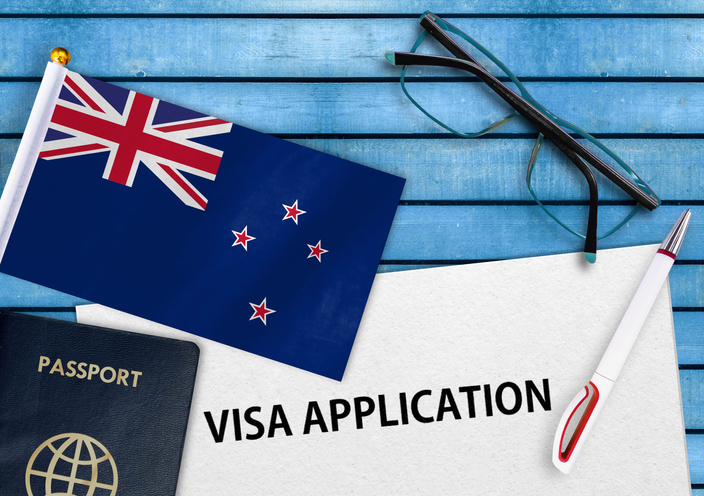After some lengthy negotiations, we have a new government (officially New Zealand’s 54th Government), formed in a coalition between the National, ACT, and NZ First parties.
There was a lot of talk during the election about the economy and the coalition has made this their #1 priority since taking office.

Unveiling their “100-day plan”, the agreements between the 3 parties include a number of proposed changes to employment and immigration legislation.
So what can we expect in terms of changes, and just what will this mean for businesses and employers. Let’s take a look.
Scrapping Fair Pay Agreements
Clearly signalled on the campaign trail, the new government has now repealed the Fair Pay Agreements Act under urgency. This is the number 1 priority of the new minister Brooke van Velden, and they will be ‘gone by Christmas’.
Fair Pay Agreements were to set legally binding minimum employment terms and conditions for an occupation or industry as a whole, and some were in the process of being negotiated between unions and business representatives. However, none were ratified so the repeal of the Act doesn’t result in any material change for Kiwi employers, it simply removes the potential for FPA coverage in the future.
Impact of change
Negligible.
Reintroduction of 90-day trials for all businesses
Currently, only businesses with 19 or fewer employees can use 90-day trial periods to assess new hires. Employers with 20 or more staff must use probationary periods, which don’t offer the same protection from personal grievance action (for unjustified dismissal).
The law change, which the government has passed under urgency, means all businesses can again use 90-day trials.
Impact of change
This change should have a fairly significant impact on the hiring and onboarding processes for a large number of employers and employees.
There are over 37,000 NZ businesses that employ 20 or more people and they can now reinstate the practice of 90-day trial periods.
However, there are some very important considerations when adopting this practice and employers should be conscious of them, especially ensuring that hiring and employment is fair, and that you always inform employees on a trial if there is anything that’s likely to lead to their termination.
Personal grievances
The government wants to simplify the personal grievance process, removing the eligibility for remedies if the employee is at fault.
Currently, if an employee is found to have contributed to the circumstances of the personal grievance, the courts can reduce the remedies they are entitled to. The change would remove eligibility to remedies entirely if the employee is at fault, although there is no detail yet on which payments (compensation for humiliation, loss of dignity, injury to feelings or lost wages) will be affected.
The government also wants to set an income threshold for employees, which would mean anyone earning more than a certain amount could not raise a personal grievance claim. Australia has a high income threshold for unfair dismissal claims (currently AUD$167,500).
Impact of change
The government has not given a timetable for these reforms yet, nor provided full-scope of how the eligibility changes will work. But a similar law exists in Australia and we can assume this change would reduce the burden on procedural fairness in dismissal or disciplinary processes, when employee fault is established.
Regardless of any change, employers will still need to treat employees fairly and reasonably to minimise the risk of personal grievance claims.
The employment status of contractors
The new government has pledged to “maintain the status quo” that contractors who have signed up to a contracting arrangement can’t challenge their employment status in the Employment Court.
This doubt has some connection to last year’s Uber case, where four drivers were ruled to be employees of the ride-sharing provider and not contractors, leading to bargaining to reach a collective employment agreement for drivers (Uber was granted the right to appeal the Employment Court decision a few months ago). There is also a history of claims from drivers in the courier industry challenging their status as contractors.
The courts currently assess whether a person is an employee or a contractor based on the actual functioning nature of the employment relationship, regardless of whether the contractor signed up to a contracting arrangement. Making it so a person who signed a contractor agreement would be unable to challenge their status would require a law change (rather than maintaining the “status quo”), so we expect to see more detail on this in 2024.
Impact of change
Until we have more detail of what is proposed, it’s hard to say. We assume the change will have the greatest impact on the transport industry, where these practices and challenges are most common. It is not clear how this could impact contractors in other industries such as professional services, trades, and construction.
Find out more about the difference between contractors and employees.
Reform of health and safety regulations
Reforming health and safety law and regulations has been made another priority, but the government has yet to provide any detail about intended changes.
The Health and Safety at Work Act 2015 is less than 10 years old and its introduction followed comprehensive review and consultation. It created PCBUs (person conducting a business or undertaking) and mandated the ‘primary duty of care’ to ensure, so far as is reasonably practicable, the health and safety of workers.
Impact of change
Unknown at this stage.
Immigration changes
The coalition government has promised a more dynamic, rigorous approach to immigration and has announced numerous changes to immigration laws and oversight, including:
- An increase to the cap on the number of workers allowed in under the Recognised Seasonal Employer scheme (intended to increase the flexibility of the quota allocation system).
- Introduction of a 5-year, renewable parent category visa (conditional on covering healthcare costs, with consideration of a public healthcare levy).
- Removal of median wage requirements from Skilled Migrant Category visas.
- Making it easier for family members of visa holders to work in New Zealand (beginning with Skilled Migrant Category visa holders).
- Improving the Accredited Employer Work Visa.
- Investigating the establishment of an “Essential Worker” workforce planning mechanism to better plan for skill or labour shortages in the long term.
- Better risk management and verification to ensure migrants are filling genuine workforce needs, and increased enforcement and appropriate action against those found responsible for the abuse of migrant workers.
Impact of changes
No doubt the expected impact of these changes is to increase the flow of skilled and essential workers into NZ by reducing some red-tape and opening worker categories up wider to target areas of shortage.
In recent times, the seasonal fruit industries, tourism, and hospitality have been affected by labour shortages due to much lower immigration in-flow.
Other things to watch
Modest minimum wage rises
The coalition has committed to “moderate increases” to the minimum wage every year (note that ACT had campaigned on a 3-year freeze to the minimum wage).
So far, there has been no detail on what “moderate” means, but the Employers and Manufacturers Association (EMA) has called for rises to be linked to an index, like superannuation and other benefits.
Public service job cuts
The new government has stated it wants to reduce public service headcounts, which may mean we see a wave of skilled professionals hitting the job market, creating more competition for vacancies and a swing in employers’ favour.
Watch, too, for the creation of obligations for Jobseeker work-ready beneficiaries to find work or face sanctions. The government is also promising to consider time limits for under 25s.
Changes to paid parental leave
During the election campaign, National pledged to change parental leave laws so parents can have more flexibility about when they take that leave.
Currently, paid parental leave can be shared between parents – but the parents can’t take this leave at the same time. National introduced a bill to implement this change earlier in 2023, but the Labour government voted against it.
ACT campaigned on reversing the 2021 increase of sick leave entitlements (from 5 to 10 days per year) and proposed scrapping the 2 January public holiday (to make up for the new Matariki holiday). So far, there has been no word on whether these policies will see the legal light of day.
We’ll be sure to keep you updated as the changes are implemented and proposals take shape.




